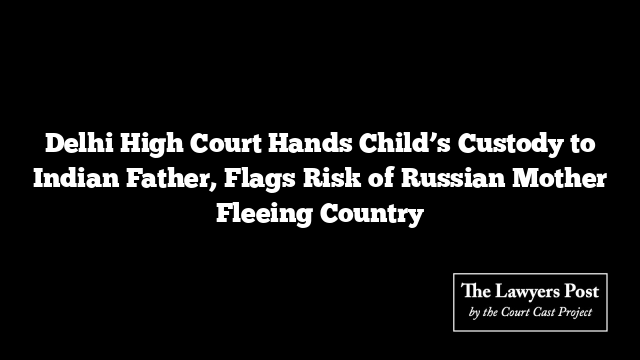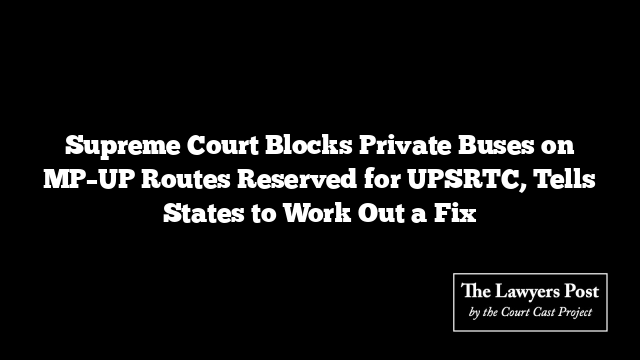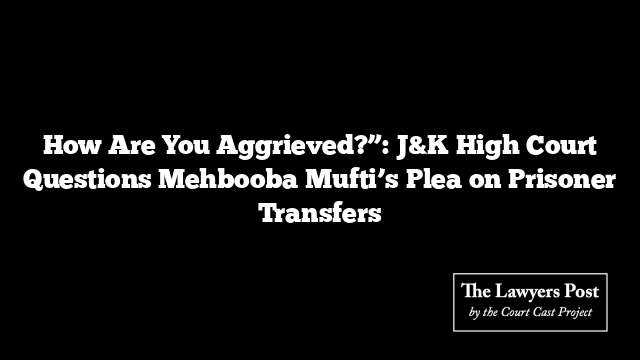The Delhi High Court has upheld a family court’s order granting interim custody of a four-year-old girl to her Indian father, warning that the child’s Russian mother might attempt to leave India and derail the ongoing custody proceedings.
A Division Bench comprising Justices Anil Kshetrapal and Harish Vaidyanathan Shankar dismissed the mother’s appeal, agreeing with the lower court that allowing her custody posed a real risk to the jurisdiction of Indian courts.
The judges observed that the legal process must be allowed to function freely and meaningfully — something that would be impossible if one party were to remove the child from India. “If this foundational feature were to be absent, the entire exercise would be rendered futile,” the Bench remarked.
The Court’s concern was amplified by the fact that both the mother and daughter hold Russian passports, and that the mother had previously approached the Russian Embassy for assistance in obtaining exit permits. “There exists more than a reasonable apprehension that the appellant may remove herself and the child from the jurisdiction of Indian courts,” the order stated.
Drawing a parallel, the Bench referenced a similar case pending before the Supreme Court, where a Russian woman, aided by her government, managed to leave India with her child despite an ongoing custody battle. The Court noted that the Indian authorities’ failure in that instance had “frustrated” judicial proceedings and left the matter entangled in diplomatic complications.
While acknowledging that under Section 6 of the Hindu Minority and Guardianship Act, 1956, a child under five ordinarily remains with the mother, the Bench held that the unique facts of this case made it more appropriate for the father to retain custody.
The couple, who married in 2013, lived in Russia before relocating to India and settling in Noida and later Dehradun. Following disputes and allegations of domestic abuse, their relationship broke down, leading to custody litigation.
The mother is currently based in Goa, working as a dance and yoga instructor earning around ₹25,000 per month. The father resides at his ancestral property in Dehradun and is engaged in its commercial development, offering what the Court considered a stable environment for the child.
Concluding that the family court’s reasoning was sound, the High Court confirmed that custody would remain with the father, citing the best interests and security of the child as paramount.





